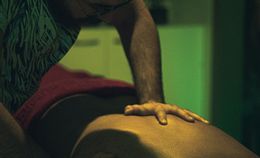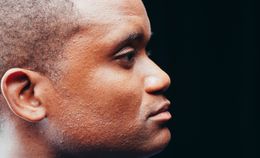Reiki is a form of energy healing that helps the recipient tap into their own innate capacity for recovery and wellness: emotional, physical and spiritual.
Modern Reiki practices vary, but typically the Reiki healer uses their hands to restore and rebalance the recipient's energy flows during a treatment session. This is accomplished through either light touch or placement of their hands in the air just above the recipient's head, torso, and limbs.
The recipient of a Reiki session lies fully clothed on a cushioned treatment table, or sits in a comfortable chair. Sometimes soft music is played. Most people find a Reiki session to be a relaxing or refreshing experience.
Among complementary and alternative wellness therapies, Reiki stands out for its broad healing power, accessibility, and safety. Anyone can derive benefit from Reiki, and treatment is readily accepted by most people. Reiki is widely regarded as extremely safe and nearly risk-free.
For these reasons, Reiki is gaining a higher profile in conventional medical settings, such as hospitals, where it is increasingly being offered as a powerful tool to support patient recovery and promote overall health and well-being.
Whether you are seeking a complementary therapy to assist you with a specific health issue or are simply exploring ways to maintain your health and wellness, Reiki can be a wonderful and effective approach.
Read on to learn more about how Reiki works and what you can expect during a session.
Understanding the healing practice of Reiki
History of Reiki
Reiki is often said to have been developed in early 20th century Japan by Dr. Mikao Usui, who Reiki practitioners sometimes refer to respectfully as the Usui Sensei.
However, historians have pointed to several earlier versions of Reiki practice that Dr. Mikao Usui drew from in his work.1 In any case, it is clear that the Usui Sensei's system of Reiki, which he called Usui Reiki Ryoho, quickly became the most popular form of the practice and contributed greatly to its growth.
Many modern Reiki healers trace their practice back to this tradition. However, there is a great deal of diversity within Reiki practice - for some, this is a sign of the vibrancy and universality of this healing art.
A spiritual practice open to all
It is important to note that while Reiki is a spiritual healing practice, it is not tied to any particular religion or set of religious beliefs. Reiki is therefore appropriate for people of any faith or no faith at all.
The International Center for Reiki Training notes that for some recipients who are religious, Reiki can help them feel more deeply connected to their religious faith.2 But no specific religious beliefs are required or promoted in order to reap the benefits of Reiki.
Healing with the power of ki
Reiki focuses on the universal life force energy that animates all living beings. "Rei" refers to the spiritual and the universal, a higher power that some people understand as God. "Ki" refers to vital life energy.
When a person is healthy, their energy is strong and flows freely. In this state, the body and mind may face challenges, but they can often overcome them through the system's ability to self-heal.
But weakened or imbalanced ki - sometimes the result of physical or emotional trauma, stress, and pain - can over time lead to illness. When ki is weakened, stagnant, or blocked, the whole system becomes more vulnerable. The typical self-healing process is impeded.
A Reiki healer helps their clients by supporting the restoration of healthy energy flows. This, in turn, promotes the recipient's inherent self-healing potential. That healing process is jump-started.
Other powerful factors behind Reiki's effectiveness
Conventional medicine and scientific research have traditionally approached spiritual healing methods with skepticism. This attitude itself deserves questioning, as religious and spiritual practices have always played an important role in human communities, especially in providing comfort and healing in moments of difficulty, illness, injury, and pain.
However, it is certainly worthwhile and interesting to consider Reiki's healing power from the perspective of empirical medical science. An empirical lens offers additional explanations for the effectiveness of Reiki, which is increasingly supported by client experience as well as mounting medical research.
Reiki in some ways represents a return to healing traditions that modern medicine has neglected - involving a caring healer giving full attention to the whole person for an extended period. Studies show that a doctor's attitudes, beliefs3, and interaction style with patients4 can impact clinical outcomes. Or, to put it in common sense terms, people often do better when they feel cared for.
The power of touch, when Reiki includes that, may be another factor that assists in healing. The dedication of time away from the activities of daily life to relax and help manage stress56 with the aid of a healer may also be helpful. A sense of the power of ritual is also very important for many people. And Reiki's emphasis on self-empowerment and participation as part of healing may also play a role in its effectiveness.
The power of social support, caring touch, stress reduction and relaxation, personal belief and the cultivation of positive emotions are all increasingly acknowledged by mainstream medicine as powerful contributors to healing and wellness. Ongoing research is adding to our nascent understanding of these forces on human health, but their power is undeniable.
Reiki incorporates all of these powerful elements in a practice that is accessible and supportive for all.
Who can Reiki help?
Reiki is commonly used by people suffering from anxiety, depression, and chronic pain from a variety of conditions, as well as those facing acute medical issues such as surgery and cancer. People turn to Reiki to support recovery as well as to help them cope with stress and discomfort.
As a technique for facilitating overall wellness and empowering self-healing, Reiki is useful to people facing mental and physical health challenges as well as people in good health who want to maintain their wellness.
What to expect
Before & during a session
Reiki practice is not regulated or standardized the way some other complementary and alternative wellness treatments have been over time. The diversity of practices available can be confusing to people new to Reiki, but diversity can also be a benefit. It ensures there are a variety of interpretations available to choose from to best meet your personal needs and preferences.
Before you meet with a Reiki healer for a session, discuss with them their training, elements of their practice, what exactly you can expect during a session, your goals, and any concerns or questions you have.
Reiki sessions typically last from 30 to 60 minutes. Sometimes sessions are shorter or longer depending on circumstances and client needs (for example, a session in a busy hospital may be as short as 15 minutes).
The Reiki recipient is usually asked to lie on their back on a cushioned treatment table if possible. If this is not possible because of physical limitations or discomfort, sitting in a comfortable chair is usually offered as an alternative. The client typically remains clothed. Loose, comfortable clothing is best to promote a relaxing experience.
Sometimes soft music is played during a session. If you have a favorite relaxing recording, feel free to suggest this to your Reiki healer. If you prefer quiet, share that, too! The purpose of a session is to help you, and your practitioner should be open to discussing how best to accomplish that.
You should also discuss touch with your healer so you know what to expect. Touch during a Reiki session does not involve pressure - just light touch held for a few minutes on the head, torso, and sometimes the limbs. Some practitioners never touch a client, and instead use a different method in which the hands are hovered just above the recipient's body.
If you prefer not to be touched at all, or if certain locations on your body should be avoided for your emotional or physical comfort, share this with your Reiki healer in advance. Similarly, if you prefer the light touch approach, you should feel free to discuss this as well before you schedule a session.
A Reiki session may or may not involve intake paperwork, depending on your healer's approach. But it should always involve a conversation about your goals and what to expect during a session in advance.
Reiki is normally delivered in a quiet setting, usually a private treatment room where possible. Once the Reiki session begins, the healer will arrange their hands in different positions either on or above your body, usually allowing several minutes for each placement.
Different Reiki practitioners may incorporate other treatment elements as well, so this is something else to inquire about in advance of your session.
After a session
People have a variety of reactions following a Reiki session. Some people feel relaxed; others feel refreshed and recharged. Some feel physical tingling sensations during or after treatment. Some people fall asleep or into a semi-conscious state during a session. Some people experience relief of physical pain, lower stress levels, and greater mental clarity. All of these responses are normal.
Reiki is generally thought to be most effective as a cumulative practice; usually a series of sessions is recommended. Your Reiki healer will likely also recommend good self-care following treatment, including staying hydrated and getting plenty of sleep. This is a reflection of the importance Reiki places on participation and empowerment of the recipient.
Remember that the key to Reiki¡s most lasting and powerful effects is your own capacity for self-healing. Your Reiki healer is there to support you as you gain greater access to your own healing powers.
References:
1 "What is the History of Reiki?": https://www.reiki.org/faqs/what-history-reiki
2 "What is Reiki?": https://www.reiki.org/faqs/what-reiki
3 "Doctors' beliefs about treatment affect patients' experience of pain": https://www.medicalnewstoday.com/articles/326761.php#1
4 "Physicians' Empathy and Clinical Outcomes for Diabetic Patients": https://pdfs.semanticscholar.org/0536/82b36e416ef7d1ebd73ee1f8be62db38580e.pdf
5 "The Impact of Stress on Health: Learning to Cope": https://www.pharmacytimes.com/publications/issue/2010/april2010/stress-0410
6 "Effects of stress management on clinical outcomes in rheumatoid arthritis": https://www.ncbi.nlm.nih.gov/pubmed/8849353





















